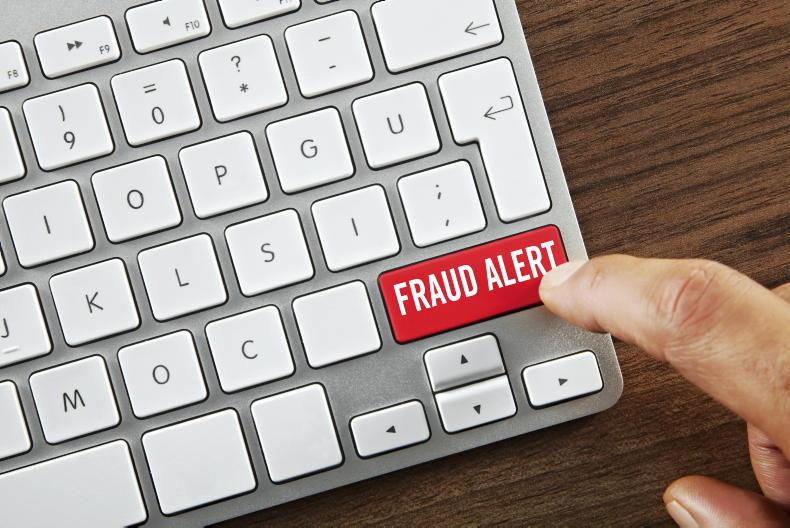As colleges reopen and the scramble for accommodation begins for many young people from farming families, it is vital to be aware of the potential for rental fraud.
Once there is high demand for any commodity, there is the potential for scammers to take advantage.
Money Mentor Margaret Nolan guides us on what to look for below.
Rental scams examples
The scammer uses photos and details from a genuine rental property and then re-advertises the property using their own email and phone number. There will be a reason why they are not available to meet you in person, such as work commitments, but they will still ask you to pay a deposit and the first month’s rent upfront.The scammer lives at the property, advertises it, shows many people around the property, taking deposits upfront from several people. They may give you a fake sets of keys, but when you arrive to move in, the keys don’t work and the scammer has disappeared. Best practice to avoid being scammed
Establish the property actually exists - use Google Maps or visit the property. Check if the property is registered for rent with the Residential Tenancies Board (RTB). Not all rental property is RTB-registered, but it is best to deal with one who is.Only deal with recognised and reputable letting agencies. Never agree to rent a property through a website or via social media. Be wary if communication is only via WhatsApp or Messenger. If the rent appears too low for the area, be on your guard. Get the landlord to meet you at the property, check that the keys work and that there is a tenancy agreement in place. When paying a deposit or a month’s rent in advance, make sure the payment is traceable, such as a cheque, bank draft or credit card. Never pay in cash or into cryptocurrency wallets or a non-bank transfer.If you think you may have been scammed, and/or have given your card or bank details to a scammer, contact your bank immediately. Also inform your local Garda station.
If you spot a fake property listed on a website, contact the site immediately so it can be taken down.
Residential Tenancies Board
The RTB released its top five tips for first-time and returning college students.
Students have rights and responsibilities when it comes to renting, whether it is the first-time renting student accommodation or the last.
The RTB is available to help students, whether it is advice on the terms and conditions of the lease or licence agreement, or how much rent or deposit you should pay.
The RTB student rental checklist includes:
Take a look around – it may be tempting to take the first place you see and pay a deposit to secure it, but do check out other properties too. Do view the property in person before signing any tenancy agreement.Check out the basics – the property should have basic minimum standards, such as hot and cold water. If sharing the accommodation with others, everyone should be aware of the terms of the lease agreement.Paying a deposit – a deposit should be equivalent to one month’s rent. You should receive a receipt that clearly states the amount and the date. Landlords will usually ask for a deposit at the start of a tenancy.How much rent should you pay – besides from the deposit, students shouldn’t be asked to pay more than one month’s rent in advance, unless you wish to do so. If the tenancy is in a rent pressure zone (RPZ), rents cannot be increased by more than general inflation.Help – contact the RTB if you need help. They are available at 0818 303037 or 01-702 8100 or visit www.rtb.ie to speak via webchat.Student-specific accommodation
All higher educational institutions, such as universities or colleges, that provide student-specific accommodation (SSA) and purpose-built SSA provided by the private sector are under the remit of the RTB.
Rent a room, digs-style accommodation and short-term lettings do not fall within the RTB’s remit.
All college students looking for rental accommodation need to be on the alert to avoid rental fraud.
Read more
Money Mentor: what the new CICA legislation means for farmers and consumers
Money Mentor: KBC bank sells non-performing loan book
As colleges reopen and the scramble for accommodation begins for many young people from farming families, it is vital to be aware of the potential for rental fraud.
Once there is high demand for any commodity, there is the potential for scammers to take advantage.
Money Mentor Margaret Nolan guides us on what to look for below.
Rental scams examples
The scammer uses photos and details from a genuine rental property and then re-advertises the property using their own email and phone number. There will be a reason why they are not available to meet you in person, such as work commitments, but they will still ask you to pay a deposit and the first month’s rent upfront.The scammer lives at the property, advertises it, shows many people around the property, taking deposits upfront from several people. They may give you a fake sets of keys, but when you arrive to move in, the keys don’t work and the scammer has disappeared. Best practice to avoid being scammed
Establish the property actually exists - use Google Maps or visit the property. Check if the property is registered for rent with the Residential Tenancies Board (RTB). Not all rental property is RTB-registered, but it is best to deal with one who is.Only deal with recognised and reputable letting agencies. Never agree to rent a property through a website or via social media. Be wary if communication is only via WhatsApp or Messenger. If the rent appears too low for the area, be on your guard. Get the landlord to meet you at the property, check that the keys work and that there is a tenancy agreement in place. When paying a deposit or a month’s rent in advance, make sure the payment is traceable, such as a cheque, bank draft or credit card. Never pay in cash or into cryptocurrency wallets or a non-bank transfer.If you think you may have been scammed, and/or have given your card or bank details to a scammer, contact your bank immediately. Also inform your local Garda station.
If you spot a fake property listed on a website, contact the site immediately so it can be taken down.
Residential Tenancies Board
The RTB released its top five tips for first-time and returning college students.
Students have rights and responsibilities when it comes to renting, whether it is the first-time renting student accommodation or the last.
The RTB is available to help students, whether it is advice on the terms and conditions of the lease or licence agreement, or how much rent or deposit you should pay.
The RTB student rental checklist includes:
Take a look around – it may be tempting to take the first place you see and pay a deposit to secure it, but do check out other properties too. Do view the property in person before signing any tenancy agreement.Check out the basics – the property should have basic minimum standards, such as hot and cold water. If sharing the accommodation with others, everyone should be aware of the terms of the lease agreement.Paying a deposit – a deposit should be equivalent to one month’s rent. You should receive a receipt that clearly states the amount and the date. Landlords will usually ask for a deposit at the start of a tenancy.How much rent should you pay – besides from the deposit, students shouldn’t be asked to pay more than one month’s rent in advance, unless you wish to do so. If the tenancy is in a rent pressure zone (RPZ), rents cannot be increased by more than general inflation.Help – contact the RTB if you need help. They are available at 0818 303037 or 01-702 8100 or visit www.rtb.ie to speak via webchat.Student-specific accommodation
All higher educational institutions, such as universities or colleges, that provide student-specific accommodation (SSA) and purpose-built SSA provided by the private sector are under the remit of the RTB.
Rent a room, digs-style accommodation and short-term lettings do not fall within the RTB’s remit.
All college students looking for rental accommodation need to be on the alert to avoid rental fraud.
Read more
Money Mentor: what the new CICA legislation means for farmers and consumers
Money Mentor: KBC bank sells non-performing loan book








SHARING OPTIONS